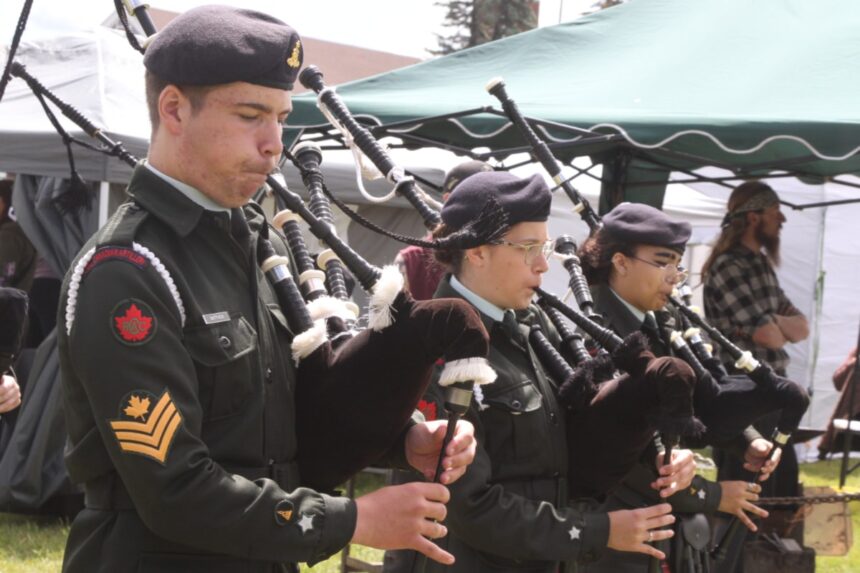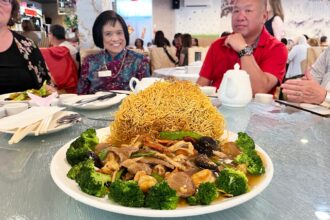Red Deer Highland Games 2024 Celebrate Scottish Traditions
The skirl of bagpipes echoed across the grounds as kilted competitors prepared to test their might. For the 78th consecutive year, the Red Deer Highland Games transformed our city into a vibrant celebration of Scottish heritage that feels increasingly rare in our digitally dominated age.
There’s something profoundly moving about witnessing traditions that have survived centuries, passed down through generations with meticulous care. As I wandered through the event grounds last weekend, I couldn’t help but reflect on how these cultural touchstones provide an anchor in our rapidly evolving world.
The heavy events remain the undeniable centerpiece of the games – massive athletes hurling weights, hammers, and the iconic caber (essentially a telephone pole) with remarkable precision and strength. It’s a raw display of athletic prowess that predates modern sporting competitions, yet continues to captivate audiences. These aren’t merely feats of strength; they’re living connections to a distant past.
“What we’re preserving here isn’t just games or music – it’s identity,” explained Margaret McPherson, a longtime organizer whose family has participated in Highland Games across North America for four generations. “In a world where cultural distinctions are increasingly blurred, these traditions provide a tangible link to our ancestors.”
Beyond the athletic competitions, the gathering showcased the full spectrum of Scottish cultural expressions. Dance competitions featured performers executing precise movements that have remained largely unchanged for centuries. The pipe band competitions demonstrated remarkable musicianship, with complex arrangements that balance innovation with deep respect for traditional forms.
What struck me most was the intergenerational nature of the event. Children as young as five participated in youth competitions while elders shared stories and techniques. This living transmission of culture creates a continuous thread through time that feels increasingly precious in our disposable culture.
The Highland Games phenomenon extends far beyond Red Deer, of course. These gatherings take place globally, from small community events to massive spectacles like the Braemar Gathering in Scotland, regularly attended by the British royal family. The Red Deer games proudly occupy a respected position in this worldwide network, attracting competitors from across Western Canada.
The games also serve as a reminder of Canada’s complex multicultural identity. Scottish immigrants have profoundly shaped our national character since the earliest days of European settlement. Their cultural contributions – from educational institutions to legal frameworks – remain foundational elements of Canadian society.
Yet as I observed the festivities, I couldn’t help questioning how we balance cultural preservation with necessary evolution. The most vibrant traditions aren’t static museum pieces but living practices that respond to changing circumstances while maintaining their essential character. The Highland Games have managed this delicate balance remarkably well, incorporating new elements while preserving core traditions.
Food vendors offered both traditional fare – meat pies and shortbread – alongside contemporary interpretations of Scottish cuisine. Craft booths displayed traditional tartans alongside modern designs inspired by Scottish aesthetics. This willingness to innovate within tradition suggests a healthy cultural confidence rather than rigid preservation.
As we navigate increasingly complex questions of cultural identity and appropriation in contemporary society, events like the Highland Games offer valuable lessons. They demonstrate how cultural traditions can be shared respectfully, celebrated across ethnic boundaries, and adapted thoughtfully without losing their essence.
For those who missed this year’s gathering, planning is already underway for next summer. Whether you claim Scottish heritage or simply appreciate cultural expressions that have stood the test of time, the Red Deer Highland Games offer a remarkable window into traditions that continue to resonate in our modern world.
In an era where many of us seek authentic experiences and meaningful connections to the past, perhaps we could all benefit from occasionally setting aside our screens to witness traditions that have survived through centuries of change. The Red Deer Highland Games aren’t merely preserving the past – they’re demonstrating how traditional practices can remain vibrantly relevant in contemporary life.
For more perspectives on cultural preservation and community celebrations, visit our CO24 Culture section, where we regularly explore the intersection of tradition and modernity in our rapidly changing world.


















